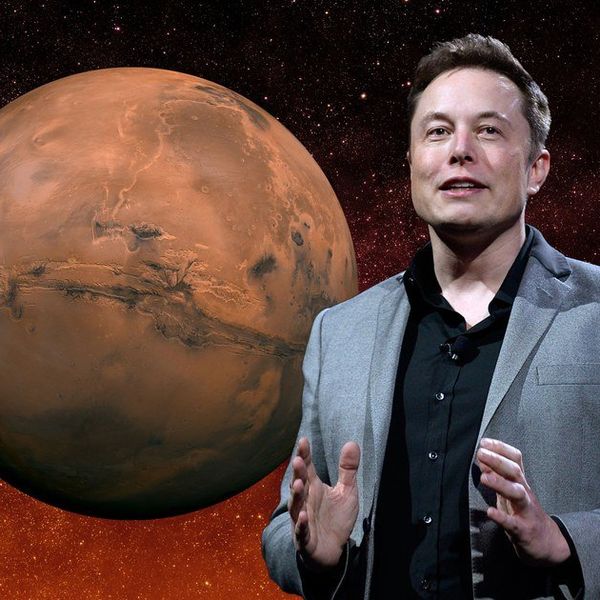In Part I, we ignored the fact that aliens might not exist and talked about why they aren’t answering our calls. In Part II, we’re going to ignore that fact even more and talk about the feasibility of aliens and what their civilizations might look like.
Denial. Heck yes.
Okay, let’s get down to extraterrestrial brass tacks: in every solar system, depending on the size and heat of the star, there is a “habitable zone” in which life can, you know, live. It’s not close enough to the star to be too hot, not far enough away to be too cold — sound familiar? Scientists call it the “Goldilocks zone” because it’s just right.
Isn’t that adorable? Correct answer: yes.
Unfortunately, that’s not the only condition for life in a solar system. The planet, yes, has to be in the Goldilocks zone, but also has to be the right mass, have the right kind of surface, and, ideally, have water, because water is the most welcoming habitat for life that occurs naturally.
Although this does limit our options by a bit, NASA recently estimated that there are about 8.8 billion planets that meet all of its criteria. That’s almost as many times as Trump has marginalized someone.
Just kidding. That number is way higher.
Now, that’s 8.8 billion potentially habitable planets in our galaxy alone. With an estimated 100 billion galaxies in the observable universe, that makes, uh… a lot of habitable planets. Approximately.
Know what else there are a lot of? Years. That the universe has been around. Shut up, that transition made sense.
Really though, scientists place the birth of the universe at about 14 billion years ago, while Earth has only been around for 4.5 billion, and humans only clocked in a couple million years ago. That means if we make history of the universe into a calendar, with the Big Bang at 12:01 AM on January 1st, humankind invented the alphabet eleven seconds ago, at December 31st, 11:59 PM and 49 seconds.
What I’m saying with that long and unquestionably original analogy is that the human race is incredibly young, and there has been plenty of time for life in the universe to brew before even Earth came on the scene.
Feel confident about ET yet? Good.
Now, in 1961 a guy named Nikolai Kardashev (yes, he is Russian, how did you guess?) came up with a scale to describe the progress of civilizations. A Type I civilization can control every source of energy on its planet — heat, hydroelectric, that kind of stuff. This is where is starts getting a little science fiction — Type II can harness the power of its star, like our Sun, by creating some kind of device to surround the star itself and harvest its energy. Finally, Type III can access all of the power in its galaxy.
For some perspective, humans rank about Type 0.73 on the Kardashev Scale.
But Jerry, you might say, that’s inconceivable that any civilization might reach Type III-level technology, which renders them close to gods from our point of view, and also you are incredibly handsome.
Two things: one, yes to that last part, and two, consider this: what if, say, three billion years before humanity, an alien race showed up. Now consider what it would look like today, after having had three billion years of time to grow technologically, socially and scientifically. Can anyone say, uh.. actually, I really can’t give you a pop culture reference here, as painful as that is to say. We can’t really conceive of a civilization this advanced. If you’re still skeptical that any species could get that far, remember that humans have only been doing science for a couple of hundred years, and we’ve already made a device that can simulate the beginning of the universe — plus, Spy Kids. Imagine what an intelligent alien species might do after several billion years.
Keeping that in mind, some thinkers have added Types IV and V to the Kardashev scale. A Type IV civilization would control all the energy in the universe — and if that isn’t Doctor Who enough for you, a Type V civilization could access all the energy in several universes. Actually, that’s another possible reason that we wouldn’t be able to detect an alien species: if a civilization reaches a certain point, we might not be able to tell the difference between what it has created and the fundamental laws of nature, which is almost certainly Doctor Who enough for you, and if it isn’t, please contact your local physician.
Yeah, yeah, I can hear your incredulous scoffing from here, but ignoring my liberal use of italics in that last paragraph, the universe is 14 billion years old, man. What if a certain civilization has existed for seven billion years? How about 10? As far as we can tell, as long as a civilization doesn’t shoot itself in the foot by succumbing to climate change or some other stumbling block (cough cough the end is nigh), it could go on forever.
So it’s looking pretty good that we might see ET one day (even though he might be huge, scary, and universe-creating) and when that day comes, we’ll each fulfill the dream of having a short, fat, cross-dressing alien of our very own.
Just me?
Here are some sources I used for this article.






















